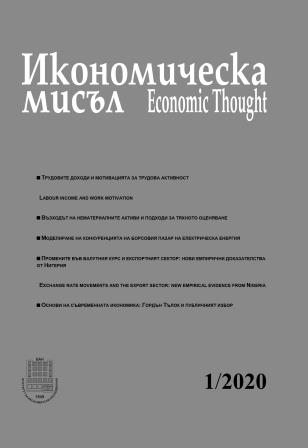Exchange rate movements and the export sector: new empirical evidence from Nigeria
Exchange rate movements and the export sector: new empirical evidence from Nigeria
Author(s): Anthony Orji, Jonathan E. Ogbuabor, Chiamaka Okeke, Onyinye I. Anthony OrjiSubject(s): Economy, Supranational / Global Economy, Financial Markets
Published by: Институт за икономически изследвания при Българска академия на науките
Keywords: exchange rate; movements; export sector; empirical analysis
Summary/Abstract: The impact of exchange rate movements on the export sector in Nigeria is examined in this study through the use of time series data and the classical linear regression model (CLRM) estimation technique. The variables employed in this study are exchange rate, agric. output, manufacturing output, total export earnings, government capital expenditure, foreign direct investment and broad money supply (M2). From the result, it becomes apparent that exchange rate movements play a significant role in the performance of the export sector in Nigeria. More specifically, the findings show that exchange rate, manufacturing output, agric. output, government capital expenditure and foreign direct investment are positively related to export earnings while the broad money supply (M2) is negatively related. It is therefore recommended that the apex bank should keep a close watch on exchange rate developments in order to enhance exchange rate stability, which will in turn contribute to the development of the export sector in Nigeria.
Journal: Икономическа мисъл
- Issue Year: 2020
- Issue No: 1
- Page Range: 94-106
- Page Count: 13
- Language: English

